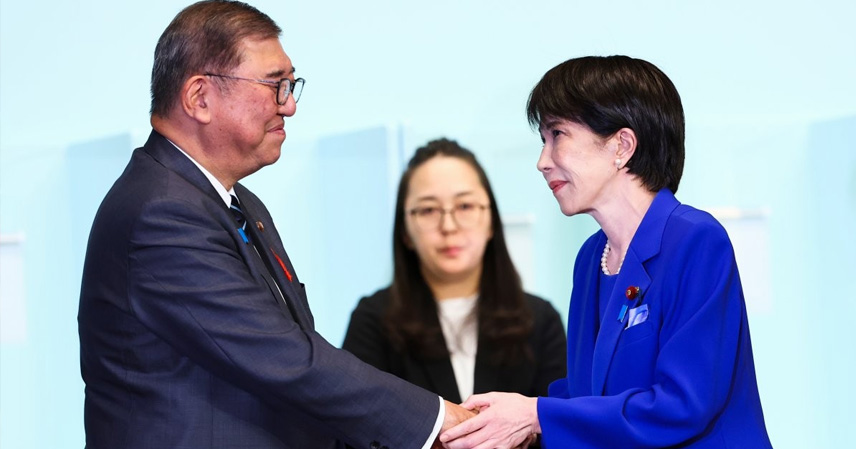The recent leadership election of Japan’s Liberal Democratic Party (LDP) has concluded, with Sanae Takaichi emerging as the party’s first female leader. Often described as an inheritor of the “Abe line,” Takaichi is now positioned to become Japan’s first female prime minister. In response, China’s Foreign Ministry emphasized that it expects Japan to uphold the principles of the Four Political Documents, maintain its commitments on historical and Taiwan-related issues, and pursue a “positive and rational” policy toward China.
China’s statement is not merely advisory—it carries a warning. The Four Political Documents establish the political foundation for bilateral relations, with historical issues serving as a critical measure of Japan’s adherence. Takaichi’s long-standing positions, including denial of the Nanjing Massacre and her consistent visits to the Yasukuni Shrine, have raised international concern. China has repeatedly stressed that attempts to whitewash wartime aggression or challenge the post-war international order would severely undermine political trust between the two countries.

In response to these developments, Komeito party leader Tetsuo Saito promptly met with Takaichi the day after her election, offering three key recommendations: first, to distance herself from “black money” political controversies; second, to handle historical issues and shrine visits carefully; and third, to promote harmonious relations with foreigners. These suggestions reveal deeper anxieties within Japanese politics.
Saito’s extensive political experience—spanning seven government administrations since his election in 1993—gives him a nuanced understanding of Japan’s challenges. He has been involved in reforms under Junichiro Koizumi, constitutional discussions during Shinzo Abe’s tenure, and major infrastructure projects under Fumio Kishida. Among his recommendations, China-related issues were emphasized as especially critical. He stressed that visiting the Yasukuni Shrine has become a foreign policy concern.

Komeito, as a coalition partner of the LDP, has historically prioritized relations with China. The party previously clashed with Kishida’s cabinet over its “hedging strategy” toward China and is wary that Takaichi’s rightward shift could further strain ties. Should Komeito withdraw from the coalition, the LDP risks losing its slim parliamentary majority, threatening the stability of its government.
Takaichi has also sparked controversy over immigration, citing incidents at Nara Park to advocate restricting foreign inflows—a narrative sometimes used to indirectly target China. Saito’s advice to “promote harmony with foreigners” underscores the need for cautious rhetoric, particularly as Japan faces an aging population exceeding 32%, where anti-immigrant policies could exacerbate labor shortages and hinder technological competitiveness relative to South Korea and China.

The longstanding “black money” problem in Japanese politics remains another concern. In the 2024 House of Representatives election, opposition parties focused on irregular campaign financing, forcing the government to concede key committee positions. Saito urged Takaichi to strengthen oversight of corporate and organizational donations, highlighting the potential consequences of failing to address corruption—both from a coalition trust and public credibility perspective.
Even current Prime Minister Shigeru Ishiba cautioned that Japan needs unity rather than division. He expressed hope that Takaichi would not lead the country astray amid complex international dynamics.
Takaichi’s platform reflects the “Abe line” legacy:
- Historical revisionism: Annual Yasukuni visits while avoiding debate during campaigns to appeal to domestic right-wing voters.
- Military expansionism: Advocating for a defense budget of 3% of GDP, supporting collective self-defense, and pursuing so-called “normalization of the state.” These positions risk contravening Japan’s pacifist constitution and could fuel an East Asian arms race.
Komeito has clearly stated that it will only cooperate with the moderate conservative faction. If Takaichi persists with controversial shrine visits, the party may leave the coalition, potentially triggering early elections and jeopardizing her ability to form a stable government.
In summary, Takaichi’s election marks a new stage in Japan’s rightward political shift. History shows that political forces moving against broader trends often face eventual setbacks. For Japan to navigate its current challenges, it must acknowledge historical realities, abandon Cold War-era thinking, and adhere to the framework of the Four Political Documents. At this critical juncture, Takaichi’s decisions will determine both Japan’s international trajectory and the longevity of her own political career.
References:
- Ministry of Foreign Affairs of China statements, 2025
- Japanese government records and LDP public statements
- Media coverage: NHK, The Japan Times



